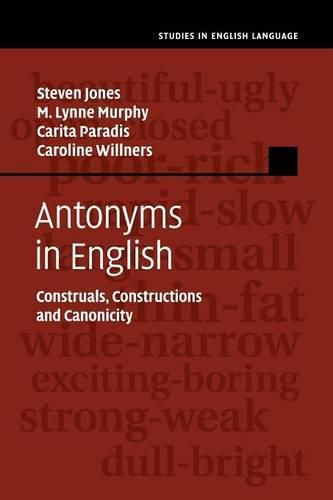Readings Newsletter
Become a Readings Member to make your shopping experience even easier.
Sign in or sign up for free!
You’re not far away from qualifying for FREE standard shipping within Australia
You’ve qualified for FREE standard shipping within Australia
The cart is loading…






The study of antonyms (or ‘opposites’) in a language can provide important insight into word meaning and discourse structures. This book provides an extensive investigation of antonyms in English and offers an innovative model of how we mentally organize concepts and how we perceive contrasts between them. The authors use corpus and experimental methods to build a theoretical picture of the antonym relation, its status in the mind and its construal in context. Evidence is drawn from natural antonym use in speech and writing, first-language antonym acquisition, and controlled elicitation and judgements of antonym pairs by native speakers. The book also proposes ways in which a greater knowledge of how antonyms work can be applied to the fields of language technology and lexicography.
$9.00 standard shipping within Australia
FREE standard shipping within Australia for orders over $100.00
Express & International shipping calculated at checkout
The study of antonyms (or ‘opposites’) in a language can provide important insight into word meaning and discourse structures. This book provides an extensive investigation of antonyms in English and offers an innovative model of how we mentally organize concepts and how we perceive contrasts between them. The authors use corpus and experimental methods to build a theoretical picture of the antonym relation, its status in the mind and its construal in context. Evidence is drawn from natural antonym use in speech and writing, first-language antonym acquisition, and controlled elicitation and judgements of antonym pairs by native speakers. The book also proposes ways in which a greater knowledge of how antonyms work can be applied to the fields of language technology and lexicography.